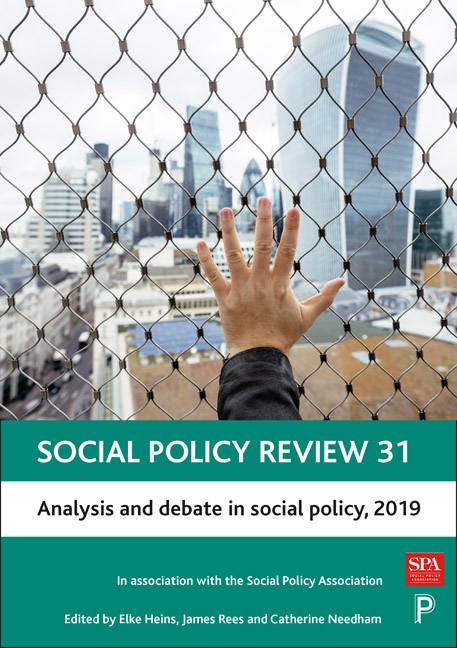1 - The English National Health Service in a cold climate: a decade of austerity
Published online by Cambridge University Press: 30 April 2022
Summary
Introduction
It has been claimed that the first half of the 2010–15 Coalition government was taken up with debate on the Health and Social Care Bill 2012 (HSCB), which was introduced by Conservative Health Secretary Andrew Lansley, while the second half was devoted to limiting the damage caused by the Bill and dealing with the effects of growing financial and service pressures in the National Health Service (NHS) (Ham et al, 2015: 1; Powell, 2016). This chapter examines the longer period of the cold climate of a decade of austerity in the English NHS, focusing on two broad moves. First, there was a broad move from the optimism of the NHS's 60th anniversary to the greater pessimism of its 70th anniversary. Second, there was a similar game of two halves based on the argument of Timmins (2018) of the rise and fall of marketisation and privatisation, with the Health and Social Care Act 2013 (HSCA) perhaps being the high-water mark of faith in ‘competition and choice’ as the key drivers of NHS reform, and the period since then seeing efforts to ‘work around’ the Act. However, in addition to the ‘constant’ of austerity, some things stayed the same, such as the continuation of inquiries into failings in the NHS, continuing inaction on social care and ‘policy retreads’ on issues such as prevention and integration.
A tale of two birthdays
This section focuses on the move from the optimism of the NHS's 60th anniversary in 2008 (under the Labour government of 1997–2010) to the greater pessimism of its 70th anniversary in 2018. In 2008, some ‘official’ accounts entered the celebratory birthday spirit, for example, according to then NHS Chief Executive David Nicholson: ‘the NHS is performing extremely well’. He continued that the NHS was on course to achieve the historic 18-week maximum waiting time by the end of 2008, and to meet challenging targets for reducing rates of health-care-associated infection. Mortality rates for cancer and cardiovascular disease had been substantially reduced, while access to GP and other primary care services was quickly improving. In its 60th anniversary year, public confidence in the NHS and patient satisfaction with the quality of NHS care were both at their highest level for years (DH, 2008a: 3).
- Type
- Chapter
- Information
- Social Policy Review 31Analysis and Debate in Social Policy, 2019, pp. 7 - 28Publisher: Bristol University PressPrint publication year: 2019

